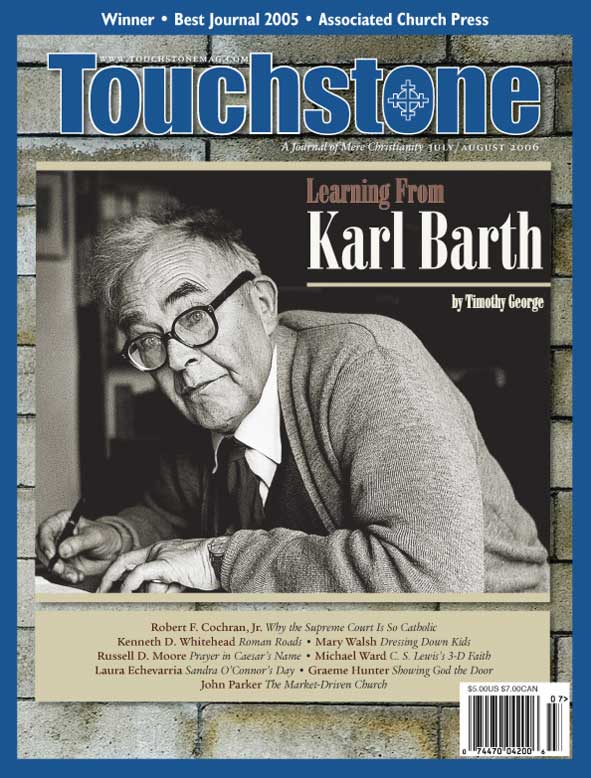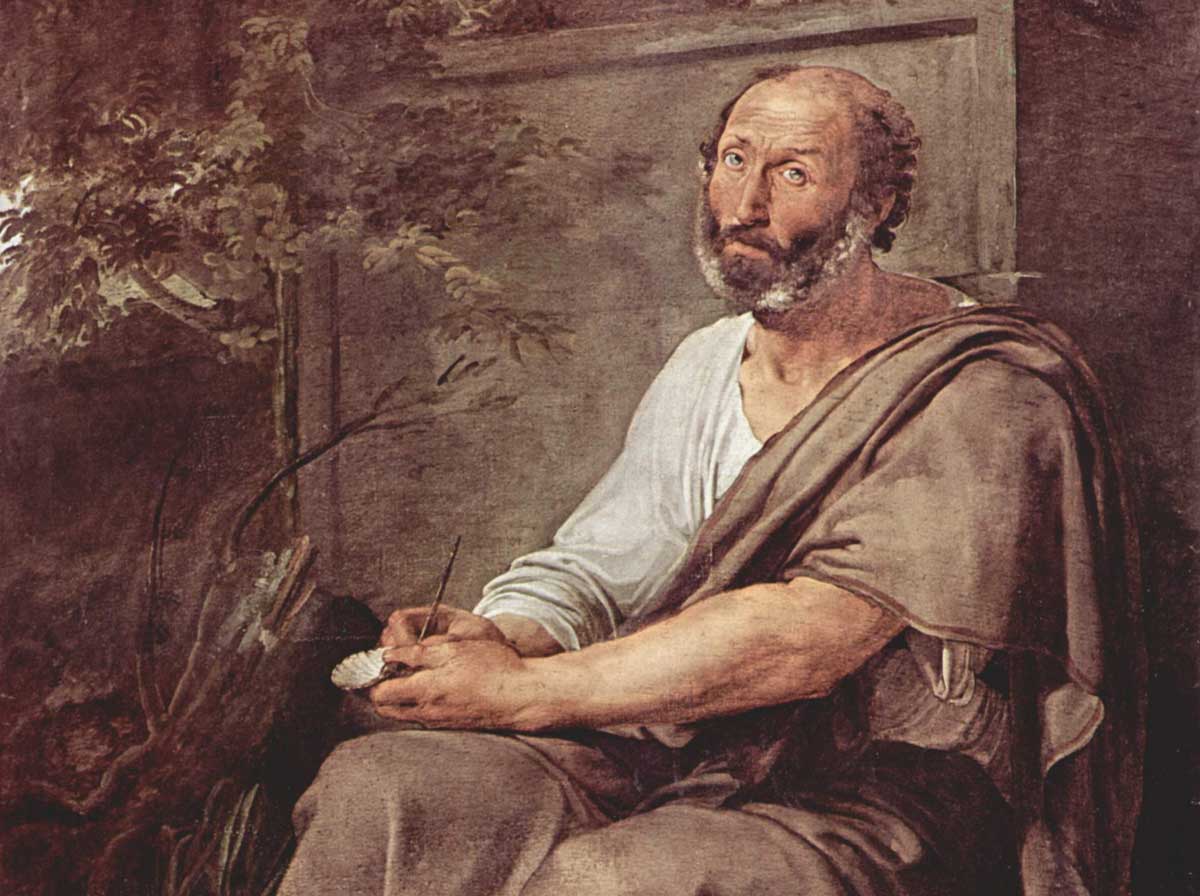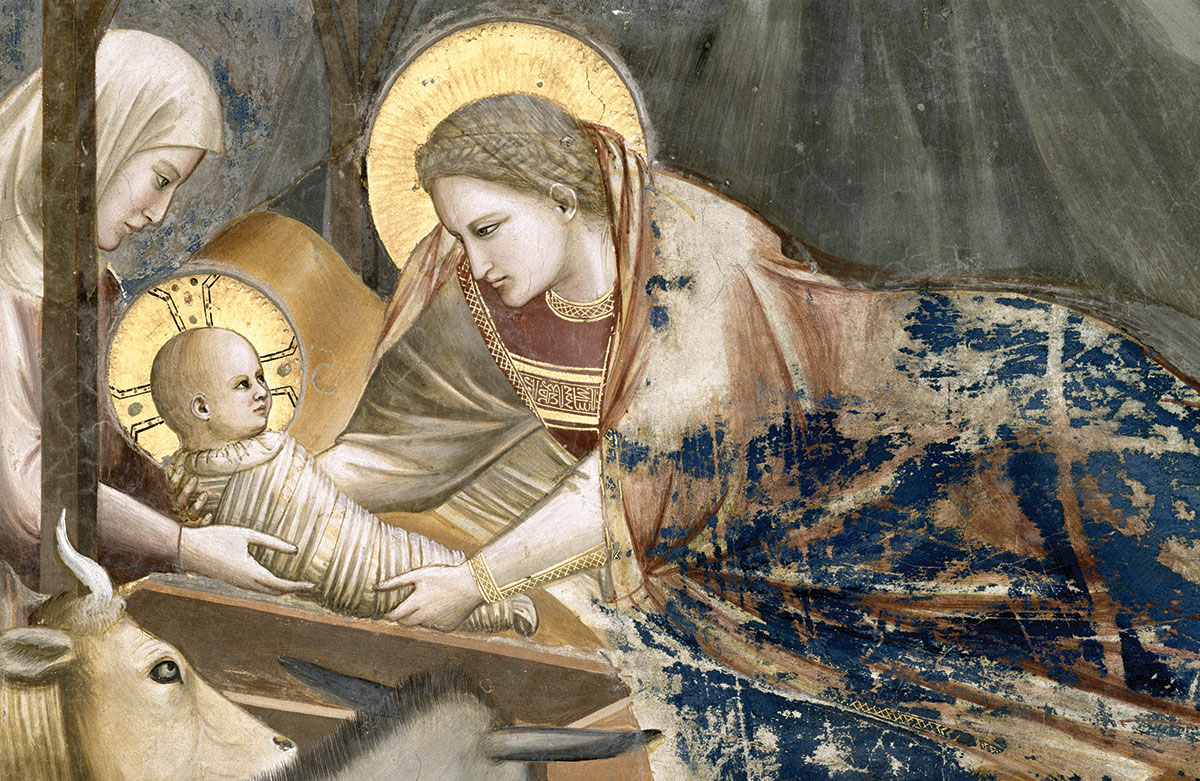Feature
Our Faith Observed
The Three-Fold Cord of Imagination, Reason & Will in C. S. Lewis
So I called over my shoulder to Billy, the car mechanic, “Are my rear blinkers working?” And he replied, “Yes, no, yes, no, yes, no, yes.” Which made me realize that there was indeed a loose connection, not in the electrical circuits of my car, but in Billy’s mental apparatus—more particularly, in his imagination.
Billy had sufficient imagination to find some meaning in my blinkers, but not enough imagination to find full meaning. For him, the fact that my lights were on meant that they were working and the fact that they were off meant they had stopped working.
Now that is better than nothing: It shows that he knows the basic meaning of electrical circuits. But it is not enough: He needs to exercise what C. S. Lewis called “the organ of meaning”—his imagination—a little more fully, to see that the occasional absence of light does not mean the circuit is not working, it means that the circuit is working as a blinker.
Imagination & Nonsense
What would you say is the opposite of meaning? Error? According to Lewis, the opposite of meaning is not error, but nonsense. Things must rise up out of the swamp of nonsense into the light of meaning if the imagination is to get any handle on them. Only then can we begin to judge whether their meanings are true or false. Meaning is “the antecedent condition of both truth and falsehood.”
Not every flashing light on a car is meaningful. Sometimes there really are loose connections, whose occasional bursts of luminosity, flickering on and off in no particular rhythm, we should best describe as nonsensical: The connections are arbitrary, random, meaningless. If the connections were regular or patterned, however, we should be inclined to conclude that they were significant, meaningful.
But what kind of meaning would they have? A true meaning, showing that the driver was about to make a turning? Or a false meaning, showing that the driver had forgotten to cancel the lever? It is reason, in Lewis’s view, that judges between meanings, helping us to differentiate those meanings that are true and illuminating from those that are false and deceptive. If the driver passes several junctions without making a turn, we reason that the flashing blinker is a misleading signal. Reason is, for Lewis, “the natural organ of truth,” which operates in consort with imagination, “the organ of meaning.”
That is enough about imagination. We will come back to it in a minute, but now let us turn to Lewis’s understanding of Christian faith and look at the role played by imagination in his own journey towards acceptance of Christianity.
What Doctrines Mean
You may well know the famous account of Lewis’s long nighttime conversation with two of his good friends, J. R. R. Tolkien and Hugo Dyson, on the subject of Christianity and myth. This took place at Lewis’s college in Oxford and was described by Lewis as the immediate human cause of his conversion. Lewis’s whole problem with Christianity, at that stage, was in knowing what Christian doctrines meant. Tolkien and Dyson showed him that Christian doctrines are not the main thing about Christianity.
Michael Ward is Senior Research Fellow, Blackfriars Hall, University of Oxford, and Professor of Apologetics at Houston Baptist University. He is the coeditor of The Cambridge Companion to C. S. Lewis (2010).
subscription options
Order
Print/Online Subscription

Get six issues (one year) of Touchstone PLUS full online access including pdf downloads for only $39.95. That's only $3.34 per month!
Order
Online Only
Subscription

Get a one-year full-access subscription to the Touchstone online archives for only $19.95. That's only $1.66 per month!
bulk subscriptions
Order Touchstone subscriptions in bulk and save $10 per sub! Each subscription includes 6 issues of Touchstone plus full online access to touchstonemag.com—including archives, videos, and pdf downloads of recent issues for only $29.95 each! Great for churches or study groups.
Transactions will be processed on a secure server.
more on C. S. Lewis from the online archives
more from the online archives
calling all readers
Please Donate
"There are magazines worth reading but few worth saving . . . Touchstone is just such a magazine."
—Alice von Hildebrand
"Here we do not concede one square millimeter of territory to falsehood, folly, contemporary sentimentality, or fashion. We speak the truth, and let God be our judge. . . . Touchstone is the one committedly Christian conservative journal."
—Anthony Esolen, Touchstone senior editor














